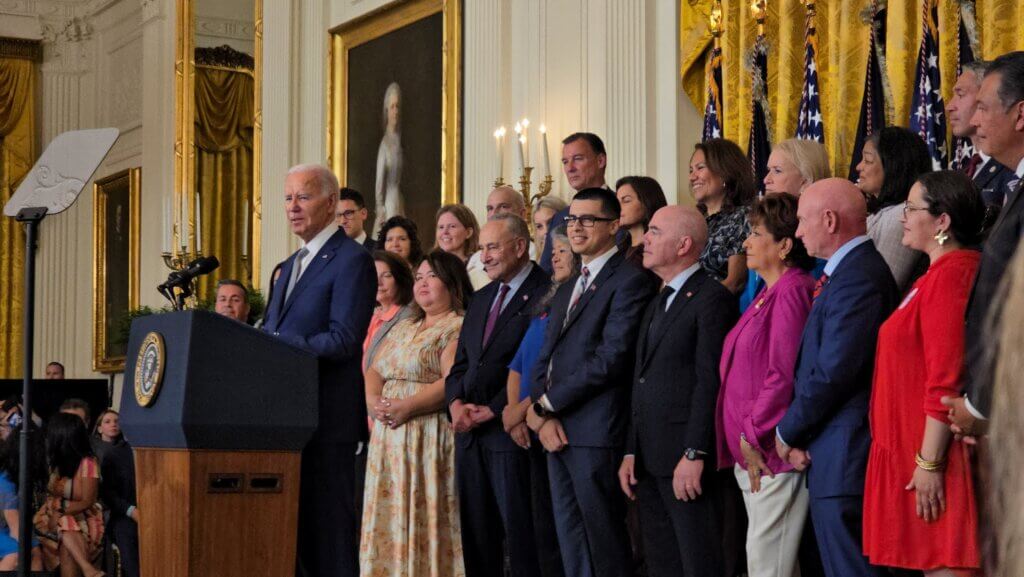This Week in Immigration Reform — Week Ending April 29

Week Ending April 29
This week in immigration: Congressman Grijalva introduces resolution condemning 1996 immigration law; 177 organizations call on DOJ to provide counsel for children in immigration proceedings; op-ed describes how Texas benefits if DAPA is implemented.
CONGRESSMAN GRIJALVA INTRODUCES RESOLUTION CONDEMNING 1996 IMMIGRATION LAW: This week, Representative Raul Grijalva (D-AZ-3) along with 30 Representatives introduced a congressional resolution calling for immigration policies that reduce automatic deportation and detention, restore due process for immigrants, and repeal unnecessary barriers to legal immigration. The “Fix96 Resolution” marks 20 years since the Antiterrorism and Effective Death Penalty Act and the Illegal Immigration Reform and Immigrant Responsibility Act were signed into law in 1996, dramatically broadening and easing deportation and detainment requirements, removing legal defenses and involving local law enforcement. Vox writes an excellent description of the impact of the 1996 laws on today’s immigration system and its impact on families.

177 ORGANIZATIONS CALL ON THE DEPARTMENT OF JUSTICE TO PROVIDE COUNSEL FOR CHILDREN IN DEPORTATION PROCEEDINGS: Organizations such as the American Academy of Pediatrics, the American Federation of Teachers, American Psychological Association, the Children’s Defense Fund, Human Rights Watch, Kids In Need of Defense, Lutheran Immigration and Refugee Service, MALDEF, NAACP, National Association of Evangelicals, National Council of La Raza, the National Education Association, the National Juvenile Justice Network, Sojourners, World Relief, and others urged the Department of Justice to make it mandatory for the government to provide counsel to all children facing deportation so that they can get a fair day in court. A copy of the letter can be seen on the First Focus website.
OP-ED DESCRIBES HOW TEXAS COULD BE ONE OF THE BIGGEST BENEFICIARIES IN THE NATION IF DAPA IS IMPLEMENTED: An op-ed written by Rebecca Acuña, Executive Director of the Latino Center for Leadership Development, outlines the ways that Texas would be one of the biggest financial beneficiaries of DAPA if the Supreme Court allows the program to move forward. “More jobs, higher incomes, and an increased GPD — that’s a deal our state can’t turn down. Aside from the financial benefits, this policy keeps families together — a quintessentially Texas value.”



